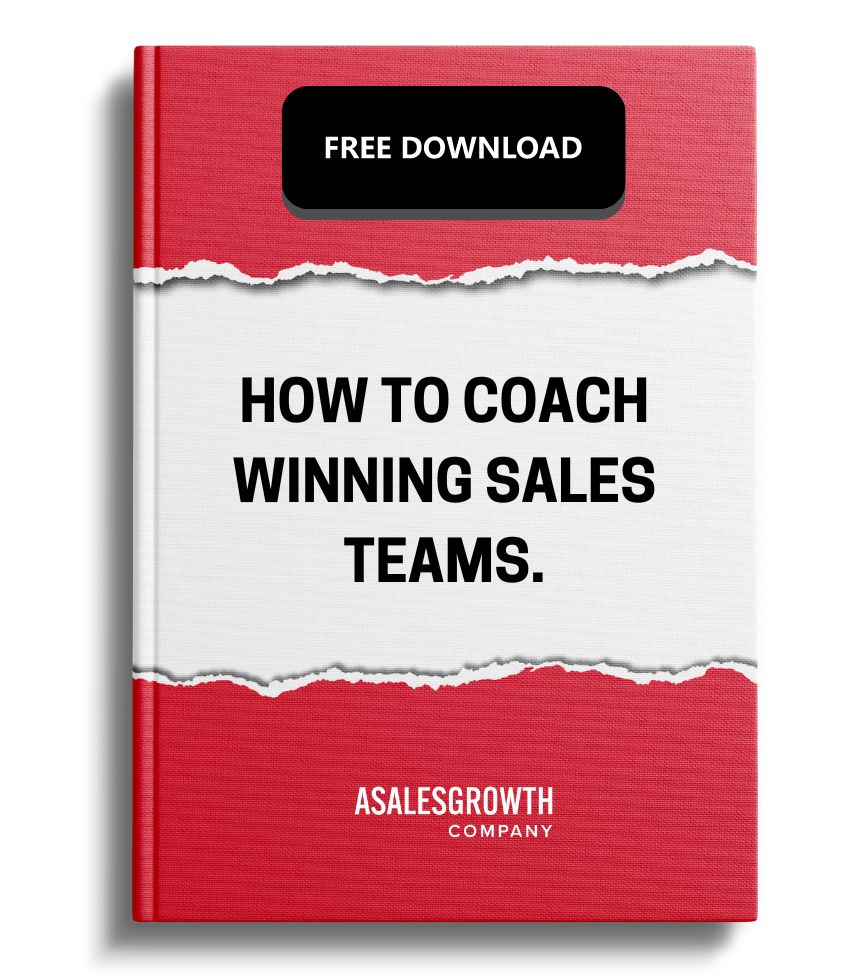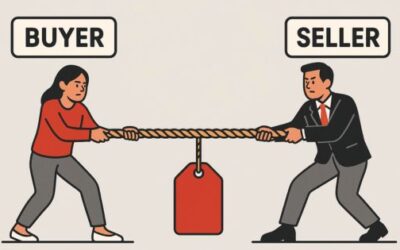Coaching, especially in sales, is a cornerstone of effective leadership. I’ve long believed that coaching is an indispensable tool for driving success. Whether you’re leading a sales organization or managing any group of professionals, robust coaching strategies can be the difference between mediocre and record-breaking performance.
If I’ve said it once, I’ve said it a thousand times, we must have coaching cadences and methodologies. Look around and you’ll rarely see a successful team that isn’t adhering to a strict coaching strategy. Industry experts like Mike Weinberg emphasize the importance of prioritizing coaching in leadership roles.
Even though experts constantly reiterate the importance of coaching, there’s one thing that often goes unmentioned in these conversations. Without it, even the most skilled coach, with the best process, will struggle.
Missing Element in Coaching
There’s two sides to every coin. We often focus or hear discussions on the perfect coaching technique or process but we never hear about the most critical factor: coachability! Without reps who are coachable, we’re wasting our time.
An individual’s openness and ability to receive, process, and act on feedback is arguably the most important character trait when hiring. Period.
Why Coachability?
Not everyone is coachable. We assume that all we need to do is provide the coaching and positive results will follow. Nope.
The reality is, not everyone is open to coaching, sees its value, or has the capacity to benefit from it. Some people struggle with criticism, positive or negative, or lack the self-awareness to grow from feedback.
No matter how skilled we are as coaches, even the best can’t overcome an uncoachable employee. Which presents a brutal challenge to organizations investing heavily in coaching initiatives. Therefore, in addition to developing high level coaching practices, we must be cognizant of the people we hire.
We must focus on both the coaching programs we create and the people we hire.
Absorb and Apply
Mark Roberge, a friend and thought leader provides a brilliantly simple, yet, powerful definition of coachability in his book “The Sales Acceleration formula.” Roberge describes coachable people as those who can “absorb and apply.” To be coachable, people must also have the ability to act on the feedback.
Absorbing Feedback
The first half of Roberge’s definition, absorb, refers to an individual’s ability to take in and process feedback. Active listening, openness to new ideas, and a willingness to consider other perspectives that might challenge one’s current thinking.
Some struggle with this first step. They might struggle to listen, be dismissive or defensive of feedback, or simply fail to grasp the importance of how feedback will help them grow. Without the ability to absorb, the coaching process stalls early.
Applying Feedback
The second half, apply, is equally important. If we can’t or won’t apply feedback, coaching again becomes useless. Applying feedback requires adaptability, ability to think on one’s feet, and the motivation to be better.
As Roberge mentions in his book “I want to hire candidates who can both absorb and apply coaching.” This framework provides managers and leaders with a clear path to evaluate coachability. It’s a reminder that coaching is more than the input of information.
When put through this rubric, the act of coaching is more than delivering feedback. It’s creating positive change and an environment for growth.
Assessing Your Team
Okay, we’ve defined the key traits of coachable team members, but, what questions should we be asking ourselves to highlight which are coachable and which are not? Write down your team and ask yourself each of these questions about all of them:
- Are they open to growth and improvement?
- Do they absorb the feedback I provide?
- Are they able to apply the coaching they receive?
- Do they demonstrate a genuine desire to get better?
- Are they willing to explore alternative approaches?
- Are they committed to personal growth?
- How do they respond to constructive criticism?
- Are they self-aware?
- Are they active participants in the coaching process?
After answering these questions, we should be able to recognize which team members are the coachable individuals.
Hiring
Given what I’ve just laid out, we need to focus on both building coachable team members and identifying coachable talent when hiring. We must actively seek candidates who can both absorb and apply coaching.
When hiring, consider incorporating questions and assessments that gauge their ability to absorb and respond positively to feedback. Look for:
- Past instances where they’ve implemented feedback
- Their approach to receiving criticism
- Examples of how they’ve adapted new methods or tactics
- Their attitude or excitement towards learning and self-improvement
As we all strive to build the best team possible we must remember that the best coaching in the world is only as good as the coachability of the coached. We must not allow ourselves to forget that assessing and developing coachability is just as important as the coaching processes themselves.




0 Comments